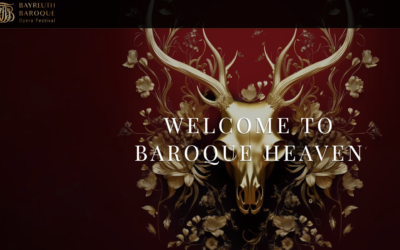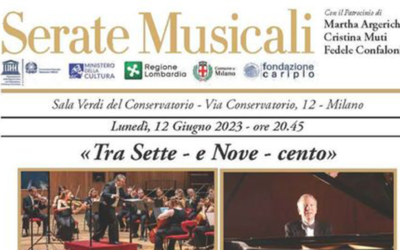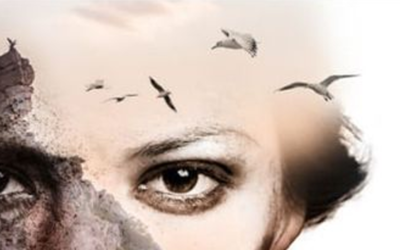A Nationalist Dream
The Hidden Origins of the Salzburg Festival
The Salzburg Festival, far from being a mere celebration of Mozart’s genius, was born out of nationalist ambitions during a turbulent period in Austro-German history. Conceived by figures like Max Reinhardt, Heinrich Damisch, and Friedrich Gehmacher, the festival was deeply rooted in ultranationalistic ideals, transforming Mozart’s legacy into a tool for cultural dominance. The truth behind its founding has long been obscured, but the primary sources tell a different, darker story.
Mozart: The Fall of the Gods
This book compiles the results of our studies on 18th-century music and Mozart, who has been revered for over two centuries as a deity. We dismantle the baseless cult of Mozart and strip away the clichés that falsely present him as a natural genius, revealing the contradictions in conventional biographies. In this work, divided into two parts, we identify and critically analyze several contradictory points in the vast Mozart bibliography. Each of the nearly 2,000 citations is meticulously sourced, allowing readers to verify the findings. This critical biography of Mozart emerges from these premises, addressing the numerous doubts raised by researchers.
"Joy was not the unifying ideal we might expect, but a weapon to impose Austria’s cultural dominance on the world."
Mozart: The Fall of the Gods
In their thirst for power and cultural dominance, the Nazis claimed the glory of Germany’s past, wrapping themselves in the artistic legacies of Bach, Beethoven, Händel, Haydn, Mozart, Schubert, and—of course—Wagner. Hitler, entranced by Wagner’s music, would descend into a frenzy that fueled his darkest ambitions. Yet the story of how Mozart’s legacy was drawn into this nationalist frenzy begins long before the rise of the Third Reich.
During World War I, actor and director Max Reinhardt (1873-1943) envisioned a Mozartian theatre that would represent “the sacred culture and Austro-German nationalism.” Reinhardt sought to build a festival that could offer the public a celebration of Mozart, one that reflected both a secular, lighthearted, and popular spirit on one side, and sacred, mystical performances on the other.
However, in the early 20th century, Mozart’s music—and Austro-German musical heritage in general—lacked the international renown that it would later achieve. Reinhardt, echoing Schiller’s “Ode to Joy” from Beethoven’s Ninth Symphony, rallied his compatriots to “conquer the world with joy.” But let’s not be fooled by such lofty rhetoric: Reinhardt’s call to “brotherhood” came with a disturbing twist, one that glorified Austria’s domination of the world—hardly the image of universal freedom we often associate with Beethoven’s masterpiece.
It was in this charged atmosphere, with the support of imperial institutions, that the idea of an international classical music festival dedicated to Mozart was born. This festival, which would become the Salzburg Festival, was steeped in nationalism from its very inception.
The true spirit behind the Salzburg Festival was to preserve a cultural tradition that, for over a century, had served both as a nostalgic reminder of Austria’s imperial past and as a nationalist tool for its future. The festival tapped into the patriotism and cultural pride of the Austro-Hungarian Empire—a sentiment that, though carefully concealed in official narratives, carried with it ultranationalistic and discriminatory ideas.
It is striking that modern scholars have often glossed over these troubling aspects of the festival’s founding. Austrian musicologist Gernot Gruber, in his 1985 book Mozart and Posterity (Mozart und die Nachwelt), fails to mention the racist and xenophobic ideologies of Heinrich Damisch (1872-1961), one of the festival’s key founders. Damisch, alongside Friedrich Gehmacher (1866-1942), established the Salzburger Festspielhausgemeinde (Salzburg Festival Society) in 1917, during a period of profound political and cultural turmoil.
What Gruber also neglects to mention is that Gehmacher, Damisch’s partner, was at the head of a powerful nationalist faction in Salzburg. He sought to exploit the influence of the Jewish Max Reinhardt to recreate a distinctly Austrian festival in Mozart’s city, modeled after Wagner’s Bayreuth Festival. These were the self-appointed “ambassadors of the modern Mozartian tradition,” determined to build a new festival hall in Salzburg to echo Wagner’s Festspielhaus.
As the festival grew, so too did its mythos—a myth that obscured its deeply nationalist, and at times exclusionary, foundations. Far from being a celebration of Mozart’s universal genius, the Salzburg Festival, in its early years, was a symbol of a cultural legacy hijacked by nationalist forces. In Reinhardt’s vision, “joy” was not the unifying ideal we might expect, but a weapon to impose Austria’s cultural dominance on the world.
Today, the story of how the festival began is conveniently sanitized, reduced to anecdotes about artistic excellence and cultural prestige. But the reality is that its origins are steeped in a darker history of appropriation and manipulation, one that used the legacy of Mozart to bolster a deeply nationalist agenda. And it is a story that must be told, for the sake of historical truth and intellectual honesty.
“Ultimately, we don’t believe in hiding the truth, and so we let the primary sources speak.”
You May Also Like
Modern Premieres at Bayreuth
The modern premieres of Antonio Tozzi, Luigi Gatti, and Tommaso Traetta’s works at Bayreuth brought long-overlooked Italian composers back into the spotlight. These performances, transcribed and revised by Luca Bianchini and Anna Trombetta, have restored the place of these remarkable composers in music history.
Luchesi’s Concerto Revived at Milan’s Sala Verdi
A standing ovation followed the performance of our revised edition of Luchesi’s Concerto in F for piano and strings at the Sala Verdi in Milan, conducted by Maestro Giorgio Rodolfo Marini and performed by the Insubria Chamber Orchestra.
A Modern Premiere in Germany
Giovanni Pacini’s Medea, revised by Luca Bianchini and Anna Trombetta, made its modern premiere in Germany at the Theater für Niedersachsen. This monumental work was performed in full, marking a triumphant revival of Pacini’s forgotten genius.
Mozart Unveiled on Radio Vaticana
Experience the power of critical musicology as Luca Bianchini and Anna Trombetta present their groundbreaking insights on Mozart’s legacy on the prestigious Radio Vaticana. Each episode unveils secrets and challenges the myths surrounding this celebrated composer.





